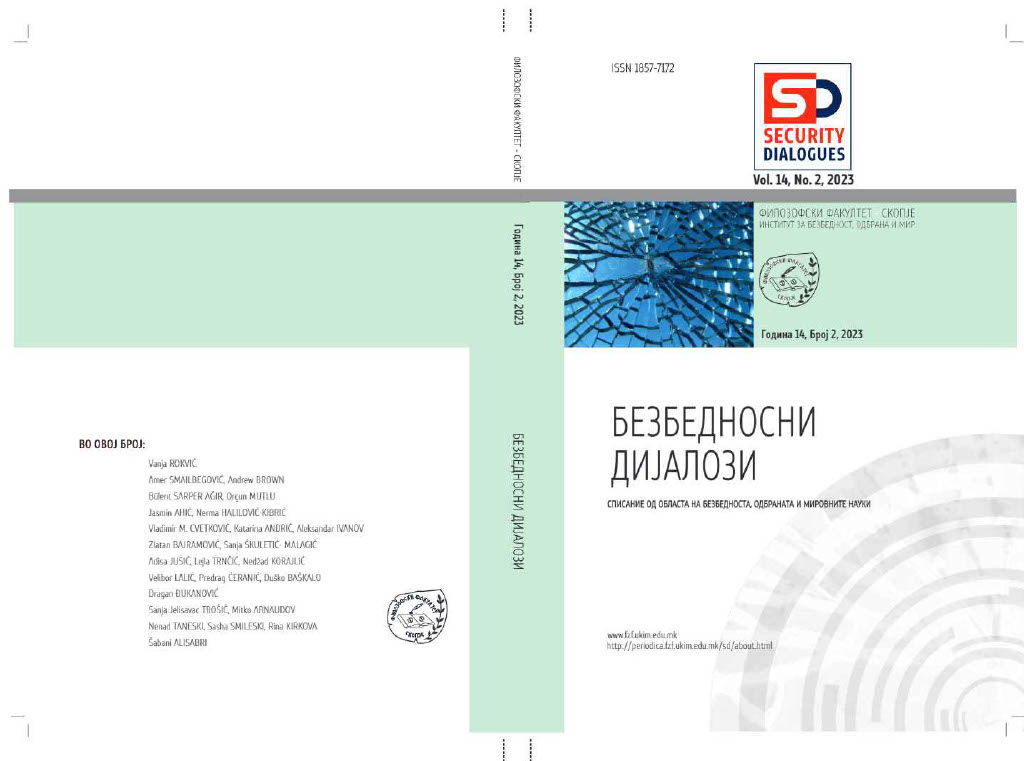FORMER PARAMILITARY ORGANIZATIONS AS A PROXY FOR CIVIL DEFENSE: BOSNIA AND HERZEGOVINA AND LEBANON
FORMER PARAMILITARY ORGANIZATIONS AS A PROXY FOR CIVIL DEFENSE: BOSNIA AND HERZEGOVINA AND LEBANON
Author(s): Amer Smailbegović, Andrew BrownSubject(s): Security and defense, Military policy, Peace and Conflict Studies
Published by: Филозофски факултет, Универзитет "св. Кирил и Методиј"
Keywords: Emergency response; Civic Organization; Civil Defence; Communal Defence; Bosnia; Lebanon
Summary/Abstract: Lebanon and Bosnia and Herzegovina share many commonalities involving sectarian and inter-ethnic strife, power-sharing agreement and the multitude of former and current paramilitary and revolutionary organizations. In the greater political view, the roles of paramilitary organizations are often controversial and problematic; however, during the times of civil-emergency, they often fill the niche of the missing first responders. In Lebanon, a fragmented country, mired in an economic turmoil with occasional outbursts of sectarian violence, the emergency response and assistance are severely curtailed, which was evident in the sluggish response to the Beirut Port Explosion. In Bosnia and Herzegovina, a country mired in the continuous power-struggle among the nationalistic parties, the emergency response is inefficient and fragmented. This paper examines the unique role of former revolutionary organizations in Beirut which have taken the form of de-facto civic organizations and formed the backbone of emergency response, clean-up, and aid distribution. The study outlines several examples where the former revolutionary organizations mobilized and utilized their command authority, hierarchy, and community roles to provide an effective and sustainable emergency response. In Bosnia, the study outlines the cases of community-based organization under the vestiges of the old general communal self-protection. The results indicate that the lessons learned from the years of civil-strife in Lebanon and vestiges of communal-defence in Bosnia have contributed to the relief distribution, cooperation across the sectarian/ethnic lines and coordination with external NGOs and state actors. Given the magnitude of the recent events(explosions and natural disasters), the role of civic organizations and their strategic approach to emergency response is instrumental to limiting further loss of life and deterioration of the overall security situation.
Journal: Bezbednosni dijalozi
- Issue Year: 14/2023
- Issue No: 2
- Page Range: 25-33
- Page Count: 9
- Language: English

